Your Complete Guide For Cleaning Your Mattress
Your mattress collects dust, sweat, skin cells, and allergens every single night. Over time, this buildup can affect both your hygiene and sleep quality. Cleaning your mattress isn’t something most people think about until there’s a spill or a smell, but it’s worth making it a regular habit, because even if it looks clean, it’s probably due for a deep refresh. Here’s your straightforward, step-by-step guide to getting it done right.
1. Strip the Bed Completely
Start by removing every layer: sheets, pillowcases, mattress covers, blankets—everything. Toss it all into the wash using hot water, if the fabric allows. High heat helps break down oils and remove bacteria or mites. While the bedding’s in the laundry, your mattress is free and ready to be cleaned. This first step probably seems obvious, but it’s good to start from square one.
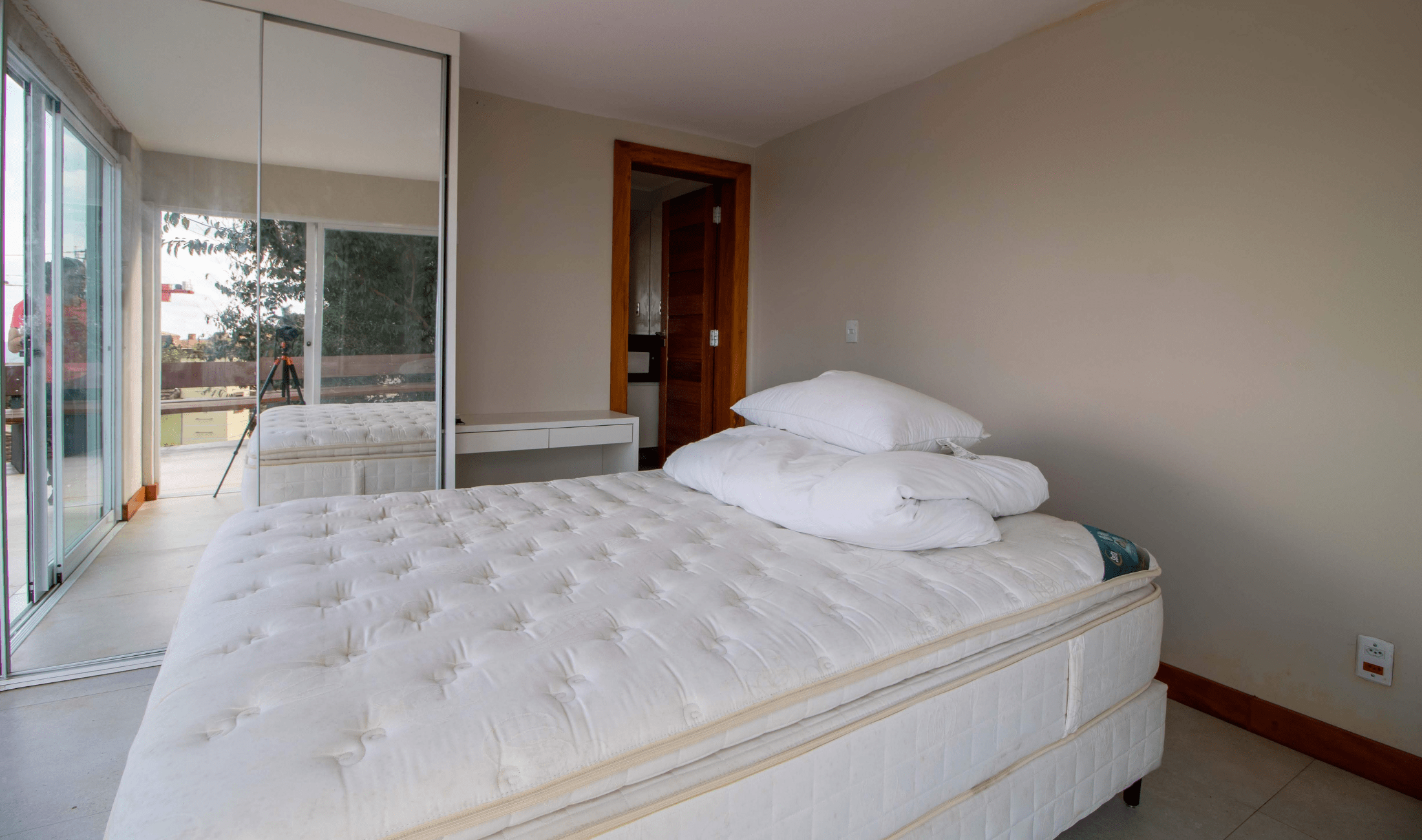
2. Vacuum the Entire Surface
Use the upholstery attachment on your vacuum to go over the mattress. Move slowly and be thorough, reaching the seams and edges where dust and debris gather the most. This clears out hair, crumbs, skin flakes, and any other loose particles. If your vacuum has a crevice tool, use that for tighter spots. Don’t forget to flip it and vacuum the underside if you can.
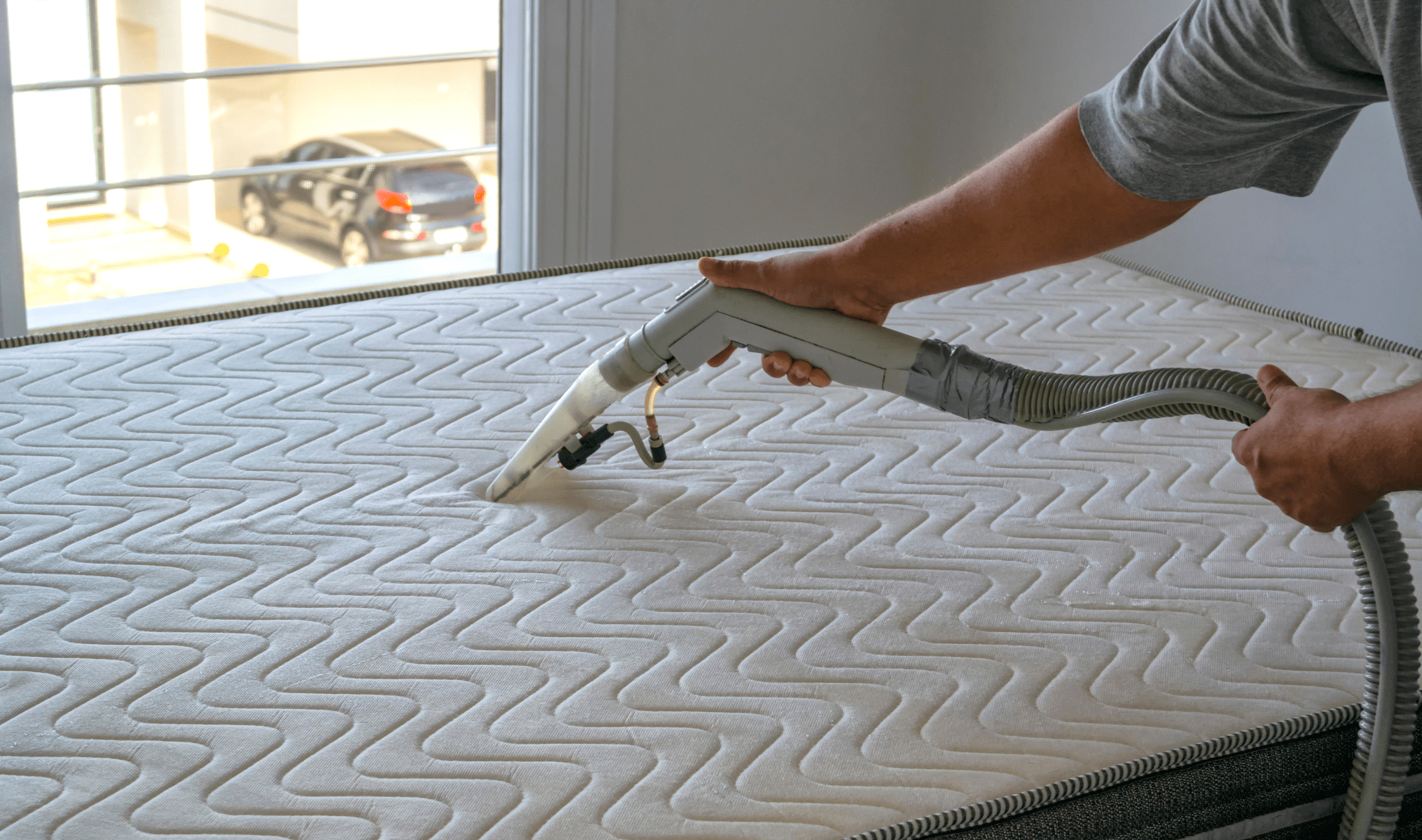
3. Spot-Clean Any Stains
Treat stains one at a time. Use a mild cleaner or a mix of dish soap and water for most messes. Dab with a clean cloth. Don’t scrub or dig into it, you’ll just push the stain deeper. For biological stains like sweat or urine, use an enzyme cleaner. Don’t get your mattress soaked with water, as that can breed mold, just get it damp enough to help lift the stain and dab it dry with a towel.
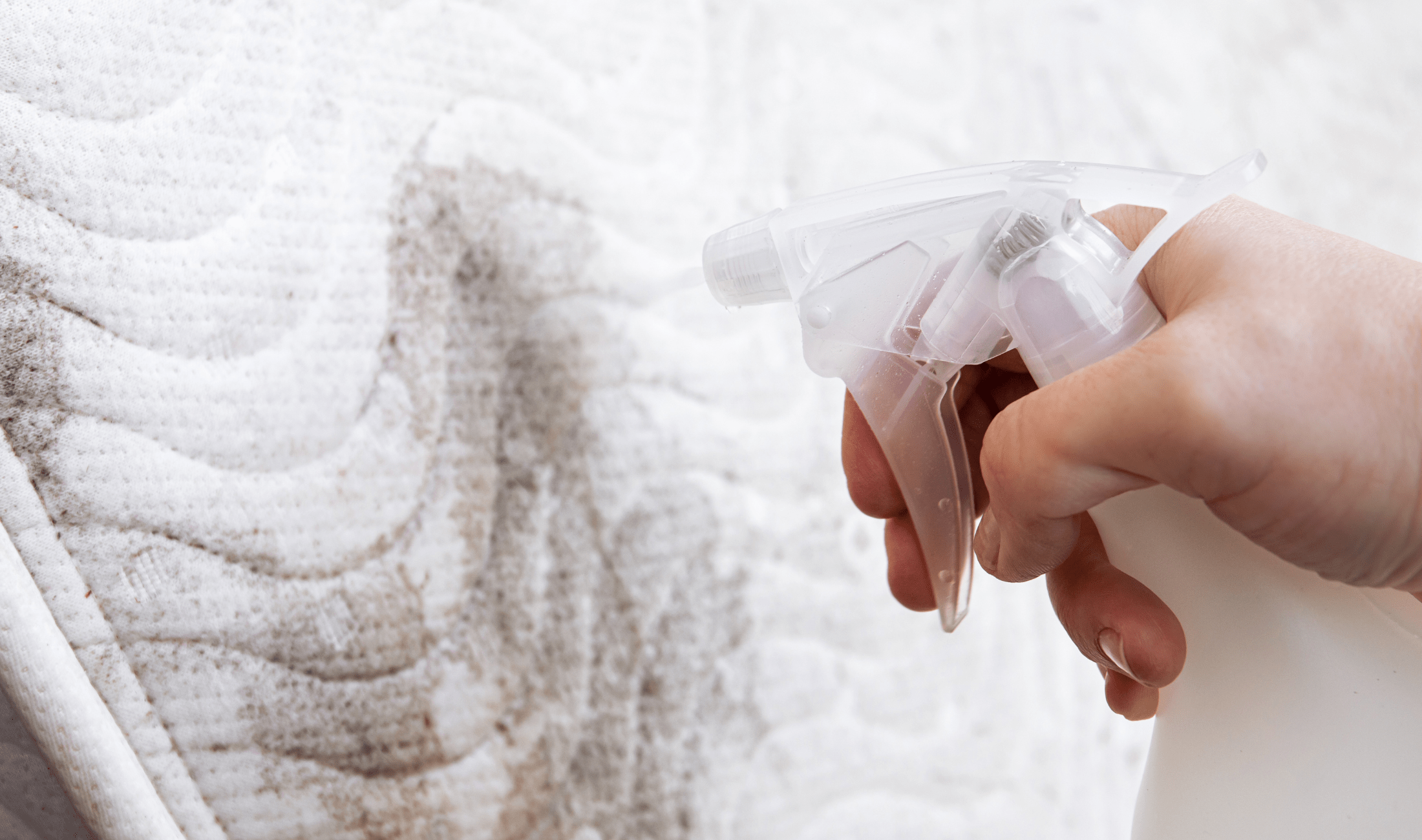
4. Deodorize with Baking Soda
Once you’ve handled stains, sprinkle a thin, even layer of baking soda over the entire surface of the mattress. Let it sit for at least a few hours, generally as long as you can before needing to sleep on it again. Baking soda naturally absorbs moisture and neutralizes odors. If you can, open a window to let fresh air help the process. After the few hours are up, vacuum it all up thoroughly.
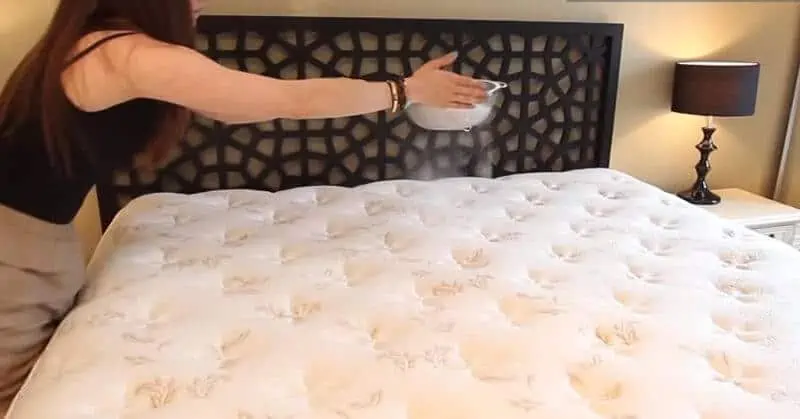
5. Air It Out
If you’re able to, stand the mattress up in a well-ventilated room or take it outside into the shade. Yes, really, outside. Airflow helps dry out any trapped humidity and keeps musty smells away. This step is especially helpful if your mattress is in a humid room or you’re dealing with stubborn, lingering odors. Even just a few hours of fresh air can make a noticeable difference.
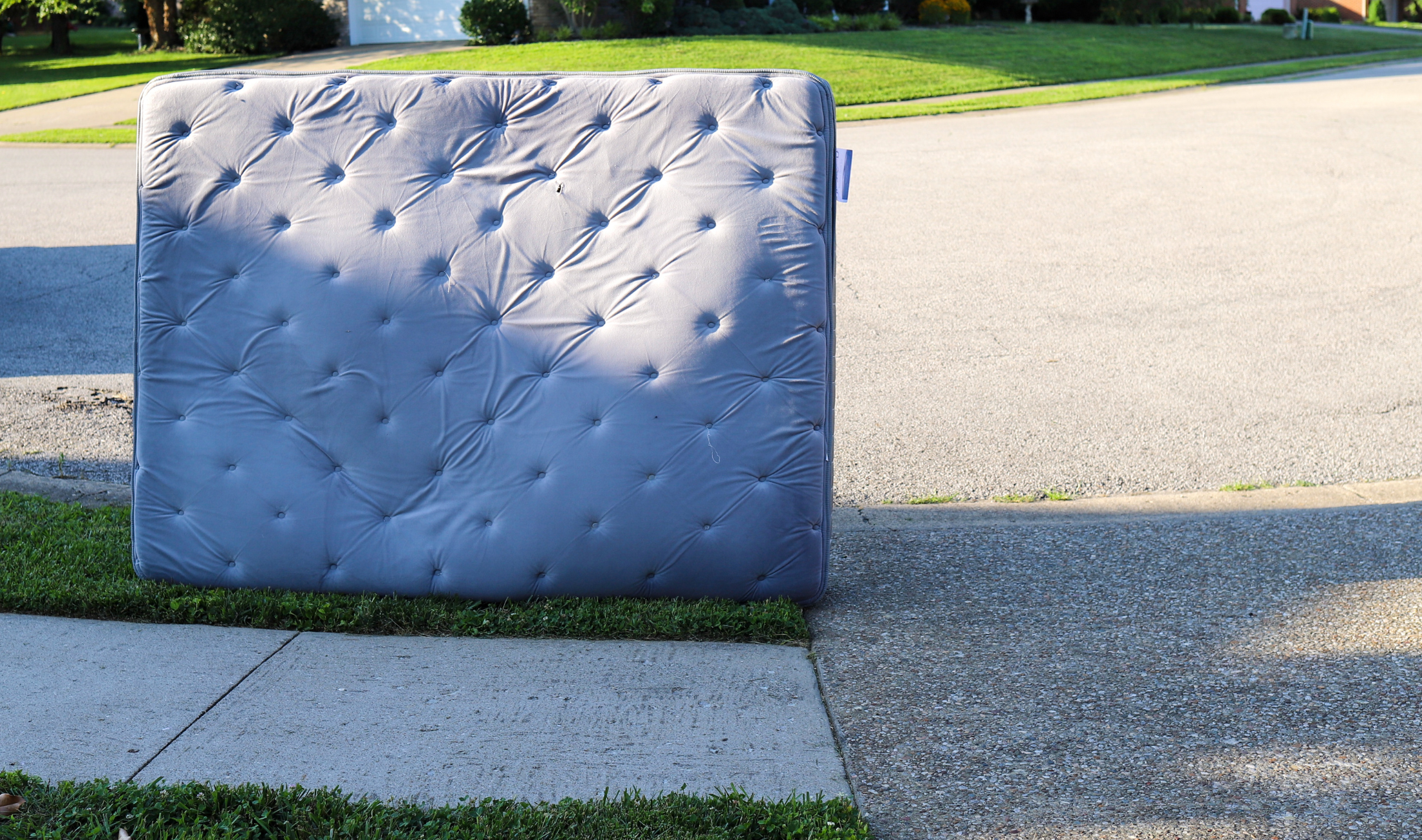
6. Rotate or Flip If Needed
Many modern mattresses are designed to be one-sided, but if yours can be flipped, do it now. At the very least, rotate it 180 degrees. This helps prevent sagging, uneven wear, and heavy stain buildup. Doing this every few months extends the life of your mattress and improves the support it gives you. Check the manufacturer’s label if you’re not sure whether it should be flipped.

7. Protect It Moving Forward
Once everything’s clean and dry, put on a waterproof or allergen-resistant mattress protector. These protect against spills, sweat, dust mites, and more. Washable covers are a great defense against future stains and smells. With a protector in place, your mattress stays cleaner longer, and you won’t have to deep-clean it as often. You’ll need to wash the covers, but you can usually do so just as you would your sheets, just be sure to check the instructions.
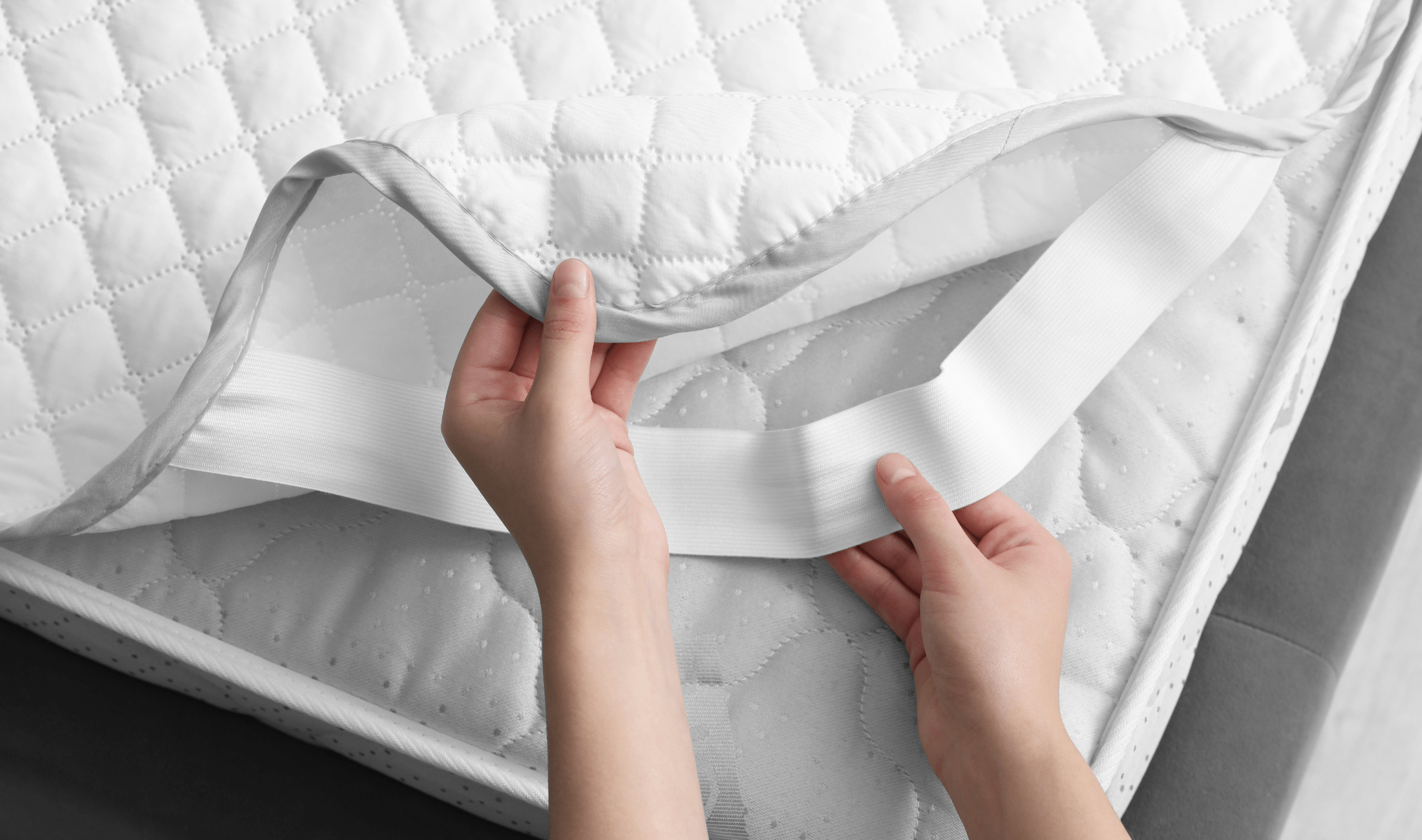
Related Articles
- How Often You Should Be Washing Your Sheets and Bedding
- Should You Flip or Rotate Your Mattress?
- How To Put On Bed Sheets The Right Way
A clean mattress begets better sleep, fewer allergies, and a healthier home overall. You don’t need fancy tools or chemicals to get a mattress clean either, just some time and a few basics. Set a reminder to do a deep clean every six months (or more often if needed). With regular care, your mattress will stay fresh, comfortable, and last much longer than if left alone.









